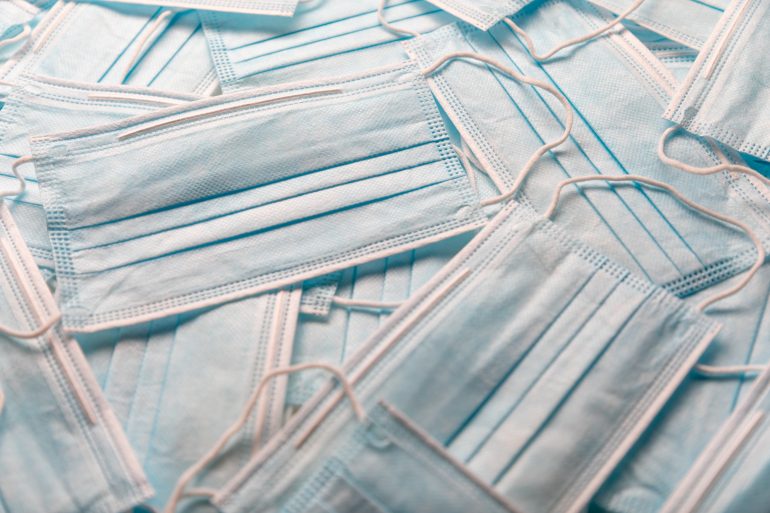The scarcity of face masks at the start of the corona crisis in 2020 led to questionable trade practices in order to supply enough masks to the Netherlands. When the whole world was on the lookout for machinery and raw materials for face masks, some traders were not averse to making some fast money in deals with the government.
Last week, scrutiny fell on Sywert van Lienden, a 31-year-old businessman, who last year used his personal contact to buy 40 million face masks from China. The Dutch government paid 100 million euros in total – not a bad deal, as € 2.50 per mask was the going price at the time. However, research journalist collective Follow The Money found out that Van Lienden had pocketed 9 million himself, and his associates another 11 million, while he had always maintained he had made no profit from the deal.
Fleur Bakker, co-owner of the Mouthmask factory in Arnhem, comments: “As social entrepreneurs of Refugee Company, a foundation that helps people with a refugee background find a job, we wanted to make a difference. No face masks were made in the Netherlands, and the government had enormous difficulty ordering them abroad.”
“We started production ourselves because we saw that there was a lot of uncertainty and cowboy behaviour in the trade. There have been many fast guys who wanted to make some quick money: I buy a lot elsewhere, put it in a container, and sell it for three times the value here. What I now read about entrepreneur Sywert van Lienden, if it is true, is not the way to do it. We did it non-profit until the end of last year – we didn’t want to take advantage of the crisis.”
Minister for Healthcare Tamara van Ark stated that the government had fully pre-funded the €100 million transaction with Relief Goods Alliance, the company of Van Lienden and his associates. Van Lienden had previously stated that the government paid him for the risk he took as an entrepreneur. The entrepreneurs were not required to contribute equity capital; however, they did use a high profit margin.
Van Ark revealed that the LCH, the government agency responsible for buying personal protective equipment (PPE) had opposed the order for Van Lienden and his business partners. According to the minister, the main reason for the opposition was that experienced buyers believed there were already enough mouth masks available on the market.
There were also objections about the price-quality ratio. However, according to Van Ark, the fact that half of the 40 million face masks delivered were rejected by the national health authority (RIVM) due to an “intolerable health risk” was not a justification to end the contract. The presence of an Irish CE certificate approved the face masks for sale in the Netherlands. In any case, they were never used because too many mouth masks had already been purchased.
Still, as a commercial party, Relief Goods Alliance has, according to Van Ark, ‘delivered in accordance with the agreed conditions’. There are therefore no reasons to request the money back, on which, among others, PVV leader Geert Wilders insisted.
After the recent commotion, Van Lienden acknowledged that he had made mistakes and that he should have been clear from the start that his company was making a profit. He is now looking for a charity – preferable a cancer research organisation – that will accept the money as a donation. So far, the biggest Dutch cancer charities have refused his donations and stated that the money should be refunded to the government. What happens to the money remains to be seen, therefore.
Written by Nicole Kerr
